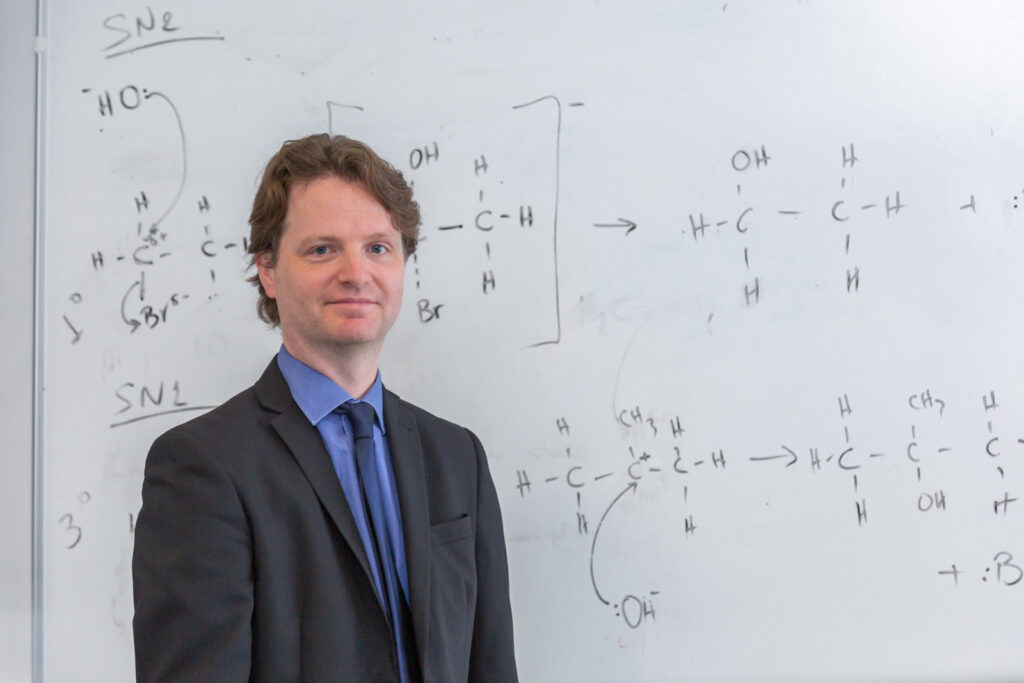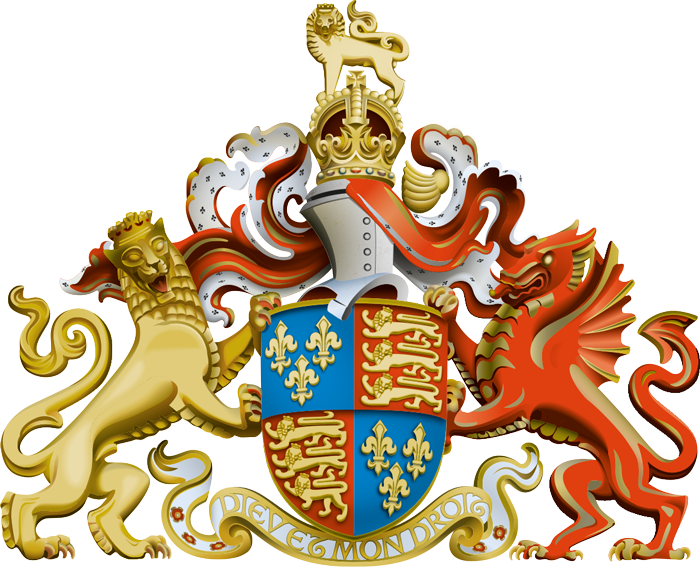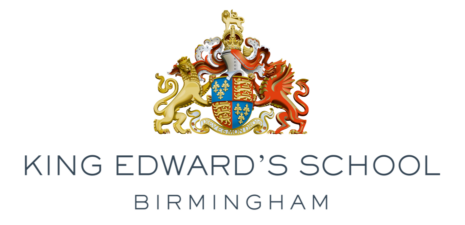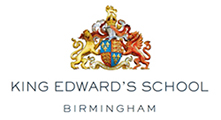Chemistry
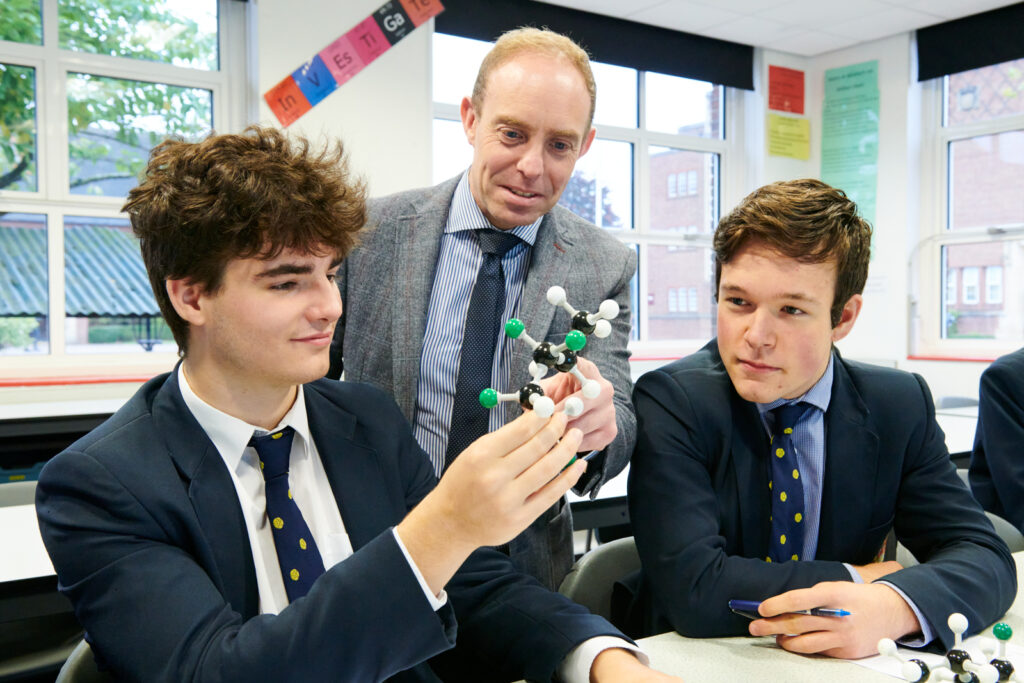
Chemistry is the central science which seeks to understand the properties of everything around us as at the atomic and molecular scale.
Chemistry underpins everything from the properties of materials used to build our world to the life and medical sciences and can be used to combat the key environmental problems of today and in the future. As a department, we aim to stimulate a lasting interest and excitement in chemistry, supported by a rich and varied programme of experimental work in all year groups.
After Year 7 Science, all students study Chemistry as a separate subject. Year 8 is a bespoke course designed to equip boys with a rigorous grounding in the fundamentals which they will build upon and use throughout the rest of their time studying the subject. This foundational theme continues in Year 9 in which we explore how atomic structure leads to the properties of materials and underpins the arrangement and properties of the elements in the periodic table.
The Edexcel IGCSE Chemistry course builds on the material covered in the Lower School, but the application of mathematics comes increasingly to the fore in Year 10, whilst in Year 11 we delve into organic chemistry. Practical work is at the heart of the course and also equips our students with the knowledge and skills needed to access IB Chemistry.
Topics studied include: atomic structure; the periodic table; chemical equations and calculations; bonding and structure; electrolysis; gases in the atmosphere; the reactivity series and extraction of metals; acids, bases, salts and titrations; chemical tests for identifying unknown substances; thermodynamics; rates of reaction; equilibria; organic chemistry, including alkanes, alkenes, alcohols, carboxylic acids, esters, and polymers.
Physical, Inorganic and Organic Chemistry are studied across both years of the Sixth Form, with extensive practical work linked to all three areas being undertaken.
Year 1
Most of the topics studied in Year 12 are developments of topics already encountered at GCSE, including atomic structure, bonding, calculations and Organic Chemistry.
Year 2
In Year 13, the pupils’ knowledge and understanding of Chemistry is developed further and the mathematical aspects of the subject have greater emphasis. Further Organic Chemistry, electrochemical cells, and transition metals are some of the topics studied in Year 13.
In the Sixth Form, a large number of boys continue with their chemistry studies, at either Standard or Higher Level, and a significant proportion go on to study science-related degrees at top UK universities.
The IB course starts by building on ideas introduced at IGCSE before developing a much deeper understanding of chemical reactions and the properties of materials. The same broad topics are studied at both Standard and Higher Level but the treatment of the topics at Higher Level include both greater depth and a more extensive application of mathematics.
The main topics studied are: quantitative chemistry, atomic structure, periodicity, bonding, energetics, kinetics, equilibrium, acids and bases, oxidation and reduction, organic chemistry, and measurement.
Experimental work is at the heart of the course throughout and both Higher Level and Standard Level chemists complete an extended project of their own design. Boys also learn about the application of technology and mathematics to Chemistry and this complements the three specified inquiry skills: exploring and designing; collecting and processing data; concluding and evaluating.
Future careers
Those who pursue Chemistry at A Level and beyond can explore diverse career opportunities as Chemistry is the central science which underpins a great variety of scientific disciplines. Aside from simply reading pure sciences at university, many go on to careers in medicine, dentistry, and engineering.
The significant mathematical and problem-solving skills acquired by chemists are also valued by the world of finance which is a field in which very many Chemistry graduates gain employment.
Beyond the classroom
We take part in a wide variety of chemistry challenges across the age range, from Top of the Bench, the Salters’ Festival of Chemistry and the West Midlands Chemistry quiz lower down the school, to Sixth Form lectures at the University of Birmingham, and we have also hosted the Royal Society of Chemistry’s Analyst Competition for schools. We also enter students into the Chemistry Olympiad and the Cambridge Chemistry Challenge each year.
Meet the Head of Department
Dr Webb
Dr Webb very much enjoyed his four-year chemistry degree and decided that he wanted to take it further. He therefore completed a PhD, which took him to the cutting edge of scientific research. It was then that he caught the teaching bug. He gained employment teaching degree-level chemistry at a Russell Group university. After engaging with schools in outreach work, he changed course and trained to become a chemistry teacher. He worked for a number of years in the South of England before coming up to the Midlands to take on the position of Head of Department at King Edward’s School.
